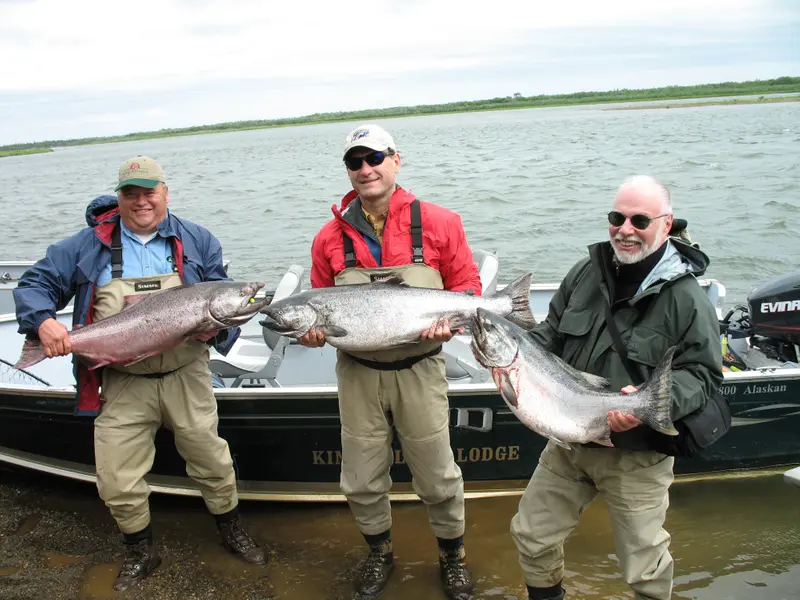Supreme Court Justice Samuel Alito, center, and hedge fund billionaire Paul Singer, right, hold king salmon with another guest. Credit: ProPublica
Dear Commons Community,
Justice Samuel A. Alito Jr. took the unusual step late Tuesday of responding to questions about his travel with a billionaire who frequently has cases before the Supreme Court hours before an article detailing their ties had even been published.
Justice Alito defended himself in a pre-emptive article in the opinion pages of The Wall Street Journal before the news organization ProPublica posted its account of a luxury fishing trip in 2008.
His response comes as the justices face mounting scrutiny over their ethical obligations to report gifts and to recuse themselves from cases involving their benefactors. The latest revelations are sure to intensify calls for the court to adopt more stringent ethics rules.
The justices have taken differing approaches to explaining their actions and attempting to protect their institution. Justice Clarence Thomas has been largely silent in the face of revelations of gifts from Harlan Crow, a wealthy Republican donor. Chief Justice John G. Roberts Jr. turned down an invitation from Congress to testify about the court’s ethics practices and made vague statements about addressing them.
And Justice Alito has come out swinging.
The ProPublica article centered on a trip Justice Alito took to a remote part of Alaska, arriving on the private jet of Paul Singer, an immensely wealthy hedge fund manager and Republican donor. The flight would have cost more than $100,000 one way if the justice had chartered it himself, the outlet estimated, and his annual disclosures make no mention of the trip, in what many experts in legal ethics said was a violation of federal law. In the years afterward, Mr. Singer’s businesses were parties to a number of Supreme Court cases in which Justice Alito participated.
ProPublica had sought comment from the justice, who instead turned to The Journal to make two main points: that he was not required to recuse himself from those cases or to disclose the travel.
Justice Alito said he had spoken to Mr. Singer only a handful of times, including on two occasions when Mr. Singer introduced the justice before speeches. “It was and is my judgment that these facts would not cause a reasonable and unbiased person to doubt my ability to decide the matters in question impartially,” Justice Alito wrote.
He added that he did not know of Mr. Singer’s connection to the cases before the court, including one in which the court issued a 7-to-1 decision in favor of one of Mr. Singer’s businesses, with Justice Alito in the majority.
But Mr. Singer’s connection to the case, Republic of Argentina v. NML Capital, was widely reported. A Forbes article covering the decision bore the headline “Supreme Court Hands Billionaire Paul Singer a Victory Over Argentina.” An article in The New York Times noted that the parties to the case included “NML Capital, an affiliate of Elliott Management, the hedge fund founded by Paul Singer.”
Justice Alito said he was not required to disclose the trip on Mr. Singer’s private jet in “a seat that, as far as I am aware, would have otherwise been vacant.”
A federal law requires disclosures of gifts over a certain value but makes exceptions for “personal hospitality of any individual” at “the personal residence of that individual or his family or on property or facilities owned by that individual or his family.” Justice Alito wrote that a jet is such a facility, quoting from dictionary definitions.
Tony



